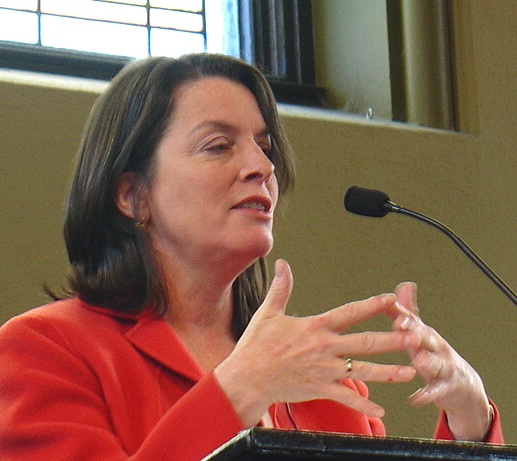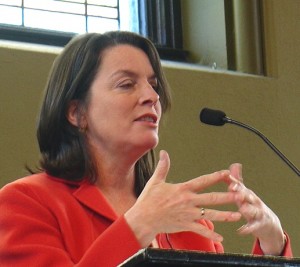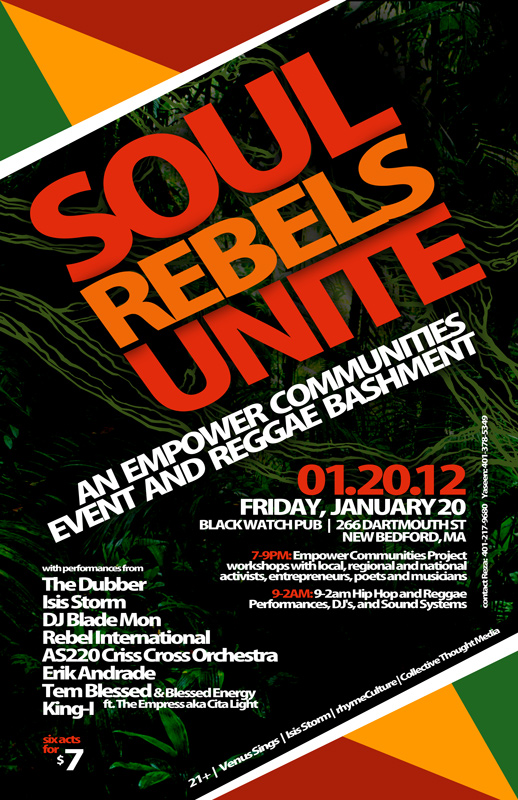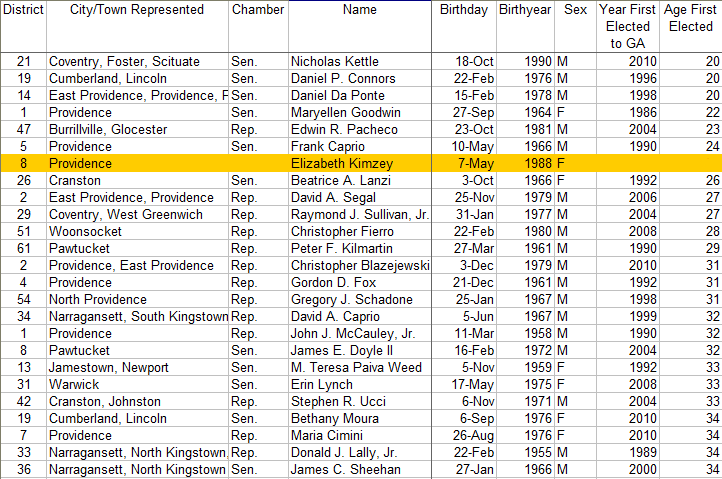Update from Sunday Morning. Seems even the epitome of mainstream media, The Washington Post, is asking the very same question about why American’s aren’t protesting.
Join David S. Meyer as he chats about his latest Outlook piece, “Americans are angry. Why aren’t they protesting?” Monday, Aug. 15 at 1 p.m. ET. In his piece, Meyer writes, “There’s something exciting, sometimes terrifying, about people taking to the streets to get what they want. In Cairo’s Tahrir Square, they gathered to demand the ouster of President Hosni Mubarak. […] Most recently, in London and across England, young people have assembled at night, looting stores and burning cars to demand – well, that’s not clear yet.
Original Post.
A conversation on Twitter concerning the riots in London brought to my attention this great article from Alternet about how we are creating (have created?) an overly compliant culture. Following the story is a video that seems to sum it up with the line from O’Connor’s song: “These are dangerous days – to say what you feel is to dig your own grave.”
8 Reasons Young Americans Don’t Fight Back: How the US Crushed Youth Resistance
Traditionally, young people have energized democratic movements. So it is a major coup for the ruling elite to have created societal institutions that have subdued young Americans and broken their spirit of resistance to domination.
Young Americans—even more so than older Americans—appear to have acquiesced to the idea that the corporatocracy can completely screw them and that they are helpless to do anything about it. A 2010 Gallup poll asked Americans “Do you think the Social Security system will be able to pay you a benefit when you retire?” Among 18- to 34-years-olds, 76 percent of them said no. Yet despite their lack of confidence in the availability of Social Security for them, few have demanded it be shored up by more fairly payroll-taxing the wealthy; most appear resigned to having more money deducted from their paychecks for Social Security, even though they don’t believe it will be around to benefit them.
How exactly has American society subdued young Americans?
1. Student-Loan Debt. Large debt—and the fear it creates—is a pacifying force. There was no tuition at the City University of New York when I attended one of its colleges in the 1970s, a time when tuition at many U.S. public universities was so affordable that it was easy to get a B.A. and even a graduate degree without accruing any student-loan debt. While those days are gone in the United States, public universities continue to be free in the Arab world and are either free or with very low fees in many countries throughout the world. The millions of young Iranians who risked getting shot to protest their disputed 2009 presidential election, the millions of young Egyptians who risked their lives earlier this year to eliminate Mubarak, and the millions of young Americans who demonstrated against the Vietnam War all had in common the absence of pacifying huge student-loan debt.
Today in the United States, two-thirds of graduating seniors at four-year colleges have student-loan debt, including over 62 percent of public university graduates. While average undergraduate debt is close to $25,000, I increasingly talk to college graduates with closer to $100,000 in student-loan debt. During the time in one’s life when it should be easiest to resist authority because one does not yet have family responsibilities, many young people worry about the cost of bucking authority, losing their job, and being unable to pay an ever-increasing debt. In a vicious cycle, student debt has a subduing effect on activism, and political passivity makes it more likely that students will accept such debt as a natural part of life.
2. Psychopathologizing and Medicating Noncompliance. In 1955, Erich Fromm, the then widely respected anti-authoritarian leftist psychoanalyst, wrote, “Today the function of psychiatry, psychology and psychoanalysis threatens to become the tool in the manipulation of man.” Fromm died in 1980, the same year that an increasingly authoritarian America elected Ronald Reagan president, and an increasingly authoritarian American Psychiatric Association added to their diagnostic bible (then the DSM-III) disruptive mental disorders for children and teenagers such as the increasingly popular “oppositional defiant disorder” (ODD). The official symptoms of ODD include “often actively defies or refuses to comply with adult requests or rules,” “often argues with adults,” and “often deliberately does things to annoy other people.”
Many of America’s greatest activists including Saul Alinsky (1909–1972), the legendary organizer and author of Reveille for Radicals and Rules for Radicals, would today certainly be diagnosed with ODD and other disruptive disorders. Recalling his childhood, Alinsky said, “I never thought of walking on the grass until I saw a sign saying ‘Keep off the grass.’ Then I would stomp all over it.” Heavily tranquilizing antipsychotic drugs (e.g. Zyprexa and Risperdal) are now the highest grossing class of medication in the United States ($16 billion in 2010); a major reason for this, according to theJournal of the American Medical Association in 2010, is that many children receiving antipsychotic drugs have nonpsychotic diagnoses such as ODD or some other disruptive disorder (this especially true of Medicaid-covered pediatric patients).
3. Schools That Educate for Compliance and Not for Democracy. Upon accepting the New York City Teacher of the Year Award on January 31, 1990, John Taylor Gatto upset many in attendance by stating: “The truth is that schools don’t really teach anything except how to obey orders. This is a great mystery to me because thousands of humane, caring people work in schools as teachers and aides and administrators, but the abstract logic of the institution overwhelms their individual contributions.” A generation ago, the problem of compulsory schooling as a vehicle for an authoritarian society was widely discussed, but as this problem has gotten worse, it is seldom discussed.
The nature of most classrooms, regardless of the subject matter, socializes students to be passive and directed by others, to follow orders, to take seriously the rewards and punishments of authorities, to pretend to care about things they don’t care about, and that they are impotent to affect their situation. A teacher can lecture about democracy, but schools are essentially undemocratic places, and so democracy is not what is instilled in students. Jonathan Kozol in The Night Is Dark and I Am Far from Home focused on how school breaks us from courageous actions. Kozol explains how our schools teach us a kind of “inert concern” in which “caring”—in and of itself and without risking the consequences of actual action—is considered “ethical.” School teaches us that we are “moral and mature” if we politely assert our concerns, but the essence of school—its demand for compliance—teaches us not to act in a friction-causing manner.
4. “No Child Left Behind” and “Race to the Top.” The corporatocracy has figured out a way to make our already authoritarian schools even more authoritarian. Democrat-Republican bipartisanship has resulted in wars in Afghanistan and Iraq, NAFTA, the PATRIOT Act, the War on Drugs, the Wall Street bailout, and educational policies such as “No Child Left Behind” and “Race to the Top.” These policies are essentially standardized-testing tyranny that creates fear, which is antithetical to education for a democratic society. Fear forces students and teachers to constantly focus on the demands of test creators; it crushes curiosity, critical thinking, questioning authority, and challenging and resisting illegitimate authority. In a more democratic and less authoritarian society, one would evaluate the effectiveness of a teacher not by corporatocracy-sanctioned standardized tests but by asking students, parents, and a community if a teacher is inspiring students to be more curious, to read more, to learn independently, to enjoy thinking critically, to question authorities, and to challenge illegitimate authorities.
5. Shaming Young People Who Take Education—But Not Their Schooling—Seriously. In a 2006 survey in the United States, it was found that 40 percent of children between first and third grade read every day, but by fourth grade, that rate declined to 29 percent. Despite the anti-educational impact of standard schools, children and their parents are increasingly propagandized to believe that disliking school means disliking learning. That was not always the case in the United States. Mark Twain famously said, “I never let my schooling get in the way of my education.” Toward the end of Twain’s life in 1900, only 6 percent of Americans graduated high school. Today, approximately 85 percent of Americans graduate high school, but this is good enough for Barack Obama who told us in 2009, “And dropping out of high school is no longer an option. It’s not just quitting on yourself, it’s quitting on your country.”
The more schooling Americans get, however, the more politically ignorant they are of America’s ongoing class war, and the more incapable they are of challenging the ruling class. In the 1880s and 1890s, American farmers with little or no schooling created a Populist movement that organized America’s largest-scale working people’s cooperative, formed a People’s Party that received 8 percent of the vote in 1892 presidential election, designed a “subtreasury” plan (that had it been implemented would have allowed easier credit for farmers and broke the power of large banks) and sent 40,000 lecturers across America to articulate it, and evidenced all kinds of sophisticated political ideas, strategies and tactics absent today from America’s well-schooled population. Today, Americans who lack college degrees are increasingly shamed as “losers”; however, Gore Vidal and George Carlin, two of America’s most astute and articulate critics of the corporatocracy, never went to college, and Carlin dropped out of school in the ninth grade.
6. The Normalization of Surveillance. The fear of being surveilled makes a population easier to control. While the National Security Agency (NSA) has received publicity for monitoring American citizen’s email and phone conversations, and while employer surveillance has become increasingly common in the United States, young Americans have become increasingly acquiescent to corporatocracy surveillance because, beginning at a young age, surveillance is routine in their lives. Parents routinely check Web sites for their kid’s latest test grades and completed assignments, and just like employers, are monitoring their children’s computers and Facebook pages. Some parents use the GPS in their children’s cell phones to track their whereabouts, and other parents have video cameras in their homes. Increasingly, I talk with young people who lack the confidence that they can even pull off a party when their parents are out of town, and so how much confidence are they going to have about pulling off a democratic movement below the radar of authorities?
7. Television. In 2009, the Nielsen Company reported that TV viewing in the United States is at an all-time high if one includes the following “three screens”: a television set, a laptop/personal computer, and a cell phone. American children average eight hours a day on TV, video games, movies, the Internet, cell phones, iPods, and other technologies (not including school-related use). Many progressives are concerned about the concentrated control of content by the corporate media, but the mere act of watching TV—regardless of the programming—is the primary pacifying agent (private-enterprise prisons have recognized that providing inmates with cable television can be a more economical method to keep them quiet and subdued than it would be to hire more guards).
Television is a dream come true for an authoritarian society: those with the most money own most of what people see; fear-based television programming makes people more afraid and distrustful of one another, which is good for the ruling elite who depend on a “divide and conquer” strategy; TV isolates people so they are not joining together to create resistance to authorities; and regardless of the programming, TV viewers’ brainwaves slow down, transforming them closer to a hypnotic state that makes it difficult to think critically. While playing a video games is not as zombifying as passively viewing TV, such games have become for many boys and young men their only experience of potency, and this “virtual potency” is certainly no threat to the ruling elite.
8. Fundamentalist Religion and Fundamentalist Consumerism. American culture offers young Americans the “choices” of fundamentalist religion and fundamentalist consumerism. All varieties of fundamentalism narrow one’s focus and inhibit critical thinking. While some progressives are fond of calling fundamentalist religion the “opiate of the masses,” they too often neglect the pacifying nature of America’s other major fundamentalism. Fundamentalist consumerism pacifies young Americans in a variety of ways. Fundamentalist consumerism destroys self-reliance, creating people who feel completely dependent on others and who are thus more likely to turn over decision-making power to authorities, the precise mind-set that the ruling elite loves to see. A fundamentalist consumer culture legitimizes advertising, propaganda, and all kinds of manipulations, including lies; and when a society gives legitimacy to lies and manipulativeness, it destroys the capacity of people to trust one another and form democratic movements. Fundamentalist consumerism also promotes self-absorption, which makes it difficult for the solidarity necessary for democratic movements.
These are not the only aspects of our culture that are subduing young Americans and crushing their resistance to domination. The food-industrial complex has helped create an epidemic of childhood obesity, depression, and passivity. The prison-industrial complex keeps young anti-authoritarians “in line” (now by the fear that they may come before judges such as the two Pennsylvania ones who took $2.6 million from private-industry prisons to ensure that juveniles were incarcerated). As Ralph Waldo Emerson observed: “All our things are right and wrong together. The wave of evil washes all our institutions alike.”
Bruce E. Levine is a clinical psychologist and author of Get Up, Stand Up: Uniting Populists, Energizing the Defeated, and Battling the Corporate Elite (Chelsea Green, 2011). His Web site is www.brucelevine.net
View this story online at: http://www.alternet.org/story/151850/
 As the state’s strongest defender of your rights and freedoms, the ACLU of Rhode Island is excited to announce our plans to celebrate Constitution Day this week by hosting a family-friendly scavenger hunt highlighting Providence’s civil liberties history. Constitution Day marks the anniversary of the signing of the United States Constitution on September 17, 1787. Americans across the country observe the anniversary by teaching students about the Constitution and Bill of Rights. This year, the ACLU of Rhode Island is hosting a Constitution Day Scavenger Hunt on Saturday, September 19, to teach Rhode Islanders of all ages about civil liberties and local history.
As the state’s strongest defender of your rights and freedoms, the ACLU of Rhode Island is excited to announce our plans to celebrate Constitution Day this week by hosting a family-friendly scavenger hunt highlighting Providence’s civil liberties history. Constitution Day marks the anniversary of the signing of the United States Constitution on September 17, 1787. Americans across the country observe the anniversary by teaching students about the Constitution and Bill of Rights. This year, the ACLU of Rhode Island is hosting a Constitution Day Scavenger Hunt on Saturday, September 19, to teach Rhode Islanders of all ages about civil liberties and local history.








